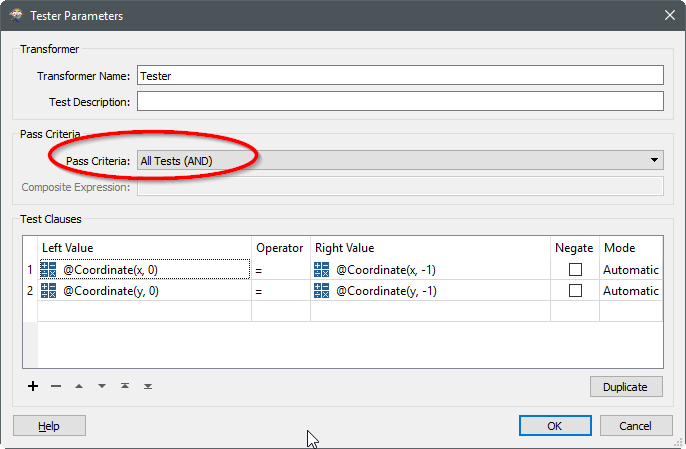I want to test polylines for closed polylines. Is there a transformer or easy way to do this? I realize that I can extract the points in the polylines with the vertex extractor and turn them into a list with the ListBuilder, but I can't figure out how to compare _list{0}._x with _list{-1}._x. The Tester does not allow _list{-1}._x. There is also no "ListPopper" that I can see.
Thanks


















